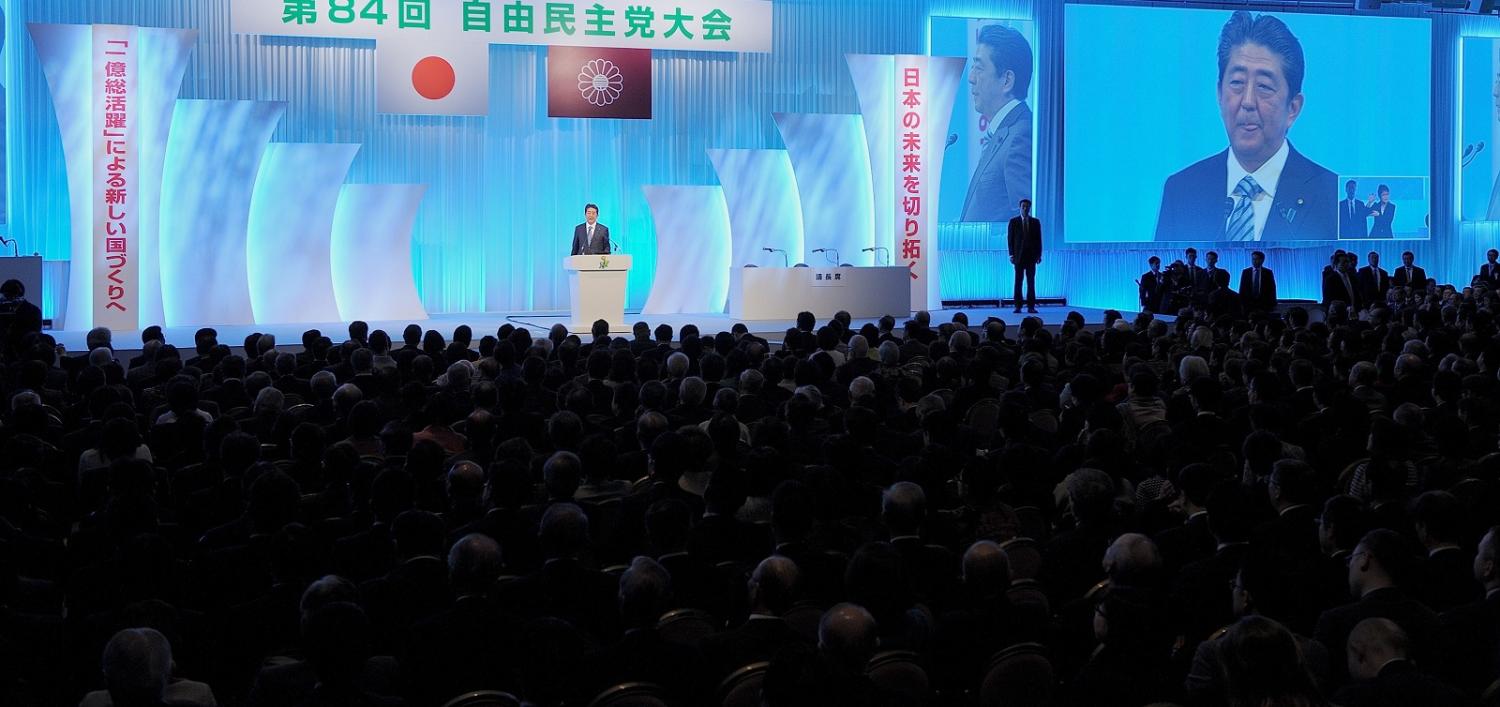Last month Japan’s Shinzo Abe marked a political renaissance that few would have expected when he secured an unusual second go at being prime minister at the 2012 election when his Liberal Democratic Party (LDP) returned to power.
Abe is now the third longest serving prime minister in the post-war period, overtaking the quirky Junichiro Koizumi – who was arguably the only Japanese leader to have made any impression on the world stage during the country’s quarter century of anaemic economic growth.
Abe’s second term has been distinguished by a more pragmatic, disciplined approach to politics compared with his pursuit of a narrow nationalist cultural agenda during his first term that ended with a shock resignation just days after he attended the 2007 APEC summit in Sydney.
Indeed, his pragmatic approach to his second coming might well be a worthwhile lesson for Tony Abbott, the fellow conservative with whom he once shared a blossoming diplomatic bromance on the regional stage.
But Abe has celebrated his official dominance of the Japanese political scene (and potentially an end to the revolving door approach to the prime ministership) by returning to old form.
He has set out a 2020 schedule for his long-desired revision of the country’s American imposed post-war constitution to at least water down Article 9, which formally renounces war.
And last week he provided an insight into the approach that may well be pursued in the controversial constitutional reform quest by shoving a bill dealing with potential terrorist threats through the country’s upper house without normal committee procedures.
Abe’s LDP coalition has an overwhelming majority in the Diet due to the fissiparous nature of the country’s opposition groups and more importantly the serious internal divisions in the official opposition Democratic Party of Japan (DPJ).
Critics say the aggressive legislative approach to the anti-conspiracy legislation underlines a creeping somewhat authoritarian tone in the government, which was evident in an angry response to a recent United Nations special rapporteur’s report about media freedom in Japan. Japan now ranks 72 on the World Press Freedom Index and the Reporters Without Borders group says media freedom has declined since 2012.
On Sunday the voters gave their verdict with an opinion poll showing a sharp 10.9 percentage point decline in support for the government to 44.9%. Two thirds of voters opposed the way the anti-conspiracy law was passed. Even more were concerned about an education funding scandal (with alleged links to Abe) which was a key reason the government wanted to close down the Diet session.
Abe has weathered such opinion poll slumps in the past by switching his attention from nationalistic issues to bread and butter economic reforms public, which the voters seem to want him to prioritise.
However just now the economy is tracking relatively well. While Abe’s eponymous Abenomics reform program has not delivered the inflation boost or structural reforms promised in 2013, Japan is experiencing its longest stretch of economic growth in a decade, suggesting some Abenomics is filtering through.
But the poll is perhaps more worrying for Abe in the short term because it comes just weeks before an election for the Tokyo city assembly where the LDP machine will be facing its latest challenge from a regional force in the absence of an effective national opposition.
And Abe will have a particularly personal interest because the new Tomin First-no Kai Party running against the LDP in Tokyo is headed by LDP deserter and former environment and defence minister Yuriko Koike. As one of the few women to make much headway in Japan’s very male dominated political culture political system, Koike potentially poses one of the few alternative leadership models to Abe. She beat the LDP’s candidate to become the elected Tokyo governor last year and has moved decisively to shakeup planning for the 2020 Tokyo Olympics with the help of flattering personality profiles in the local and foreign media.
The last such left field challenge to the LDP’s renewed dominance (after the only period of DPJ rule in 2009-12) came from Osaka local government identity Toru Hashimoto but lost momentum due to internal differences in his restoration movement.
But Koike is more of a political professional and can take some confidence from the way the bad weekend opinion poll has prompted a spate of media reports about a ministry reshuffle in the Abe government.
The Nikkei Asian Review recently neatly captured the public equivocation about Abe’s 'strong armed' administration on sensitive issues. It quoted a former Cabinet official as saying 'the forcefulness of their (LDP) tactics outshines the strength of their convictions.'
Japan’s capacity to deploy its Self Defence Force offshore was considerably expanded by legislative changes in 2015 but regional security would be well served by Japan being able to operate more effectively with other countries including Australia.
And despite his 2020 plan for a constitutional amendment, there is considerable speculation that Abe would really like to notch up this achievement as early as next year. This would mark a grand national renewal to coincide with the abdication of the current Emperor Akihito and the 150th anniversary of the Meiji Restoration that established modern parliamentary government.
And if he wins the election due by late next year he will be well on the way to becoming the country’s longest serving prime minister ever in late 2019. Although this rumoured private timeline of benchmarks before 2020 may well prompt more of the hard-line legislative tactics the voters have rejected.
This week’s International Monetary Fund preliminary report on Japan will provide a timely reminder for Abe that the celebrated Meiji era success saw the once isolated Japan build a new regional engagement on the back of massive economic reforms at home.
The IMF notes that recent economic growth under Abenomics has largely been 'grounded in external gains and temporary fiscal stimulus' and a more comprehensive package of structural reforms and incomes (boosting) policy is needed for sustained growth and strength.

